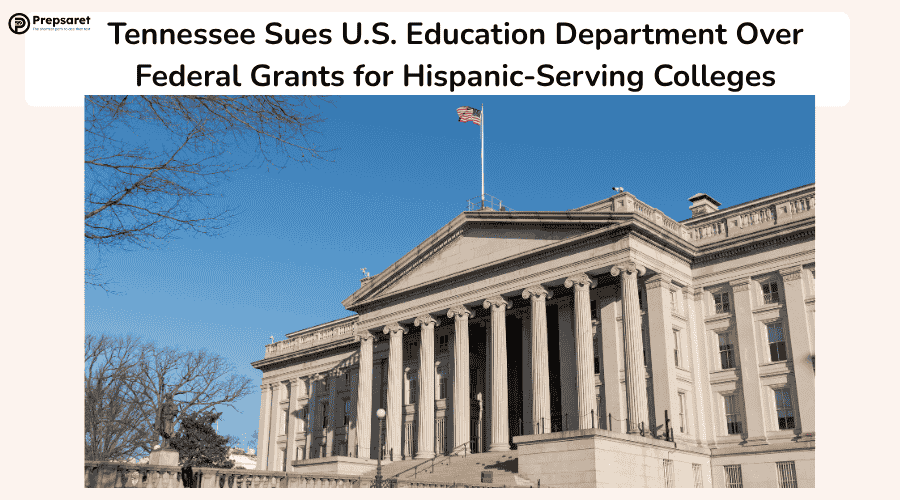Key Takeaways:
- Tennessee and the conservative group Students for Fair Admissions have filed a lawsuit against the U.S. Department of Education, claiming the Hispanic-Serving Institutions (HSI) grant program is unconstitutional.
- The lawsuit argues the program discriminates based on ethnicity by limiting federal grants to schools with at least 25% Hispanic enrollment, excluding other institutions serving low-income Hispanic students.
- The legal challenge follows broader national debates over race-based policies in education after the U.S. Supreme Court struck down affirmative action in college admissions in 2023.
Tennessee Challenges Federal Grants for Hispanic-Serving Institutions
In a new legal battle reflecting the nation’s ongoing debate over race-based policies in education, Tennessee’s Republican Attorney General Jonathan Skrmetti has filed a federal lawsuit targeting a U.S. Department of Education program that provides grants to colleges and universities enrolling significant numbers of Hispanic students.
The complaint, filed on June 11 in federal court in Knoxville, was brought in partnership with Students for Fair Admissions, the conservative group that successfully challenged affirmative action in the U.S. Supreme Court last year.
At the heart of the dispute is the Hispanic-Serving Institutions (HSI) program, a federal initiative that offers additional funding to schools where at least 25% of students identify as Hispanic.
In the 2024 fiscal year, Congress appropriated nearly $229 million for these institutions, with funds typically used for lab equipment, STEM tutoring, and student support services aimed at low-income and minority students.
Attorney General Skrmetti contends the program is both illegal and discriminatory, excluding many schools — including public colleges in Tennessee — that serve both Hispanic and low-income students but fail to meet the 25% enrollment threshold.
“A federal grant system that openly discriminates against students based on ethnicity isn’t just wrong and un-American — it’s unconstitutional,” Skrmetti said in a statement announcing the suit.
Legal and Policy Debates Over Race-Based Educational Programs
The lawsuit argues that the program’s eligibility criteria violate the equal-protection principles of the Fifth Amendment and that Congress exceeded its constitutional authority in creating a grant system based on ethnic composition.
Citing the 2023 Supreme Court decision against race-conscious college admissions, the plaintiffs claim that the HSI program similarly treats students differently because of their ethnicity.
Supporters of the HSI program counter that it addresses long-standing disparities in higher education funding and resources. A 2021 report from the Postsecondary National Policy Institute noted that Hispanic students often attend colleges with fewer resources and limited academic outcomes.
The HSI program was created to narrow those gaps by providing targeted federal support to institutions serving large Hispanic populations.
The U.S. Department of Education has yet to comment on the pending litigation. This case is the latest in a wave of conservative-led legal challenges targeting programs, scholarships, and internships perceived to offer advantages based on race or ethnicity.
Advocacy groups like Students for Fair Admissions have been actively pursuing litigation against a variety of race-based initiatives in both public and private sectors, continuing a broader national debate over the role of diversity and equity policies in American institutions.

